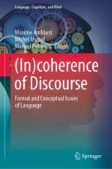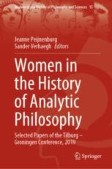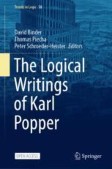Search
Search Results
-
Expressing Power of Elementary Quantum Recursion Schemes for Quantum Logarithmic-Time Computability
Quantum computing has been studied over the past four decades based on two computational models of quantum circuits and quantum Turing machines. To...
-
Aspects of Categorical Recursion Theory
We present a survey of some developments in the general area of category-theoretic approaches to the theory of computation, with a focus on topics...
-
Linguistic Recursion and Danish Discourse Particles: Language in Children with Autism Spectrum Disorder
In a study involving 62 Danish children with autism spectrum disorder, we obtained results showing that the mastery of linguistic recursion is a...
-
Darwin and the golden rule: how to distinguish differences of degree from differences of kind using mechanisms
Darwin claimed that human and animal minds differ in degree but not in kind, and that ethical principles such as the Golden Rule are just an...

-
Semantics for a Lambda Calculus for String Diagrams
Linear/non-linear (LNL) models, as described by Benton, soundly model a LNL term calculus and LNL logic closely related to intuitionistic linear...
-
Non-labelled Sequent Calculi of Public Announcement Expansions of \(\textbf{K45}\) and \(\textbf{S5}\)
This paper proposes non-labelled sequent calculi, \(\textsf{G}(\textbf{K45PAL})\)...
-
Why is Generative Grammar Recursive?
A familiar argument goes as follows: natural languages have infinitely many sentences, finite representation of infinite sets requires recursion;...
-
Genes and Natural Selection Finalize Nature
The power, form, and function of living things depend on nutrition and reproduction, which in turn depend on the unique power, form, and function of...
-
Rózsa Péter on the Philosophy and Foundations of Mathematics: A Reappraisal
Stephen KleeneKleene, Stephen (1909–1994) once praised the Hungarian mathematician and logician Rózsa Péter (1905–1977) as “the leading contributor...
-
The End of Final Causes in Biology
This book provides a straightforward introduction to teleology in biology, the work it did and the work it can do. Informed by history and...

-
The iterative conception of set does not justify ZFC
Surveying and criticising attitudes towards the role and strength of the iterative conception of set—widely seen as the justificatory basis of...
-
Popper’s Correspondence with Stephen Cole Kleene
Stephen Cole Kleene (1909–1994) was an American logician, well-known for his fundamental work in various fields of theoretical computer science, such...
-
Mechanical Organisms in the Enlightenment
Enlightenment Biologists looked for new ways to think about nature. Proponents of empirical and mechanical philosophy sought a physiology, a physics...
-
Natural language syntax complies with the free-energy principle
Natural language syntax yields an unbounded array of hierarchically structured expressions. We claim that these are used in the service of active...

-
Internal Categoricity, Truth and Determinacy
This paper focuses on the categoricity of arithmetic and determinacy of arithmetical truth. Several ‘internal’ categoricity results have been...
-
Towards an Induction Principle for Nested Data Types
A well-known problem in the theory of dependent types is how to handle so-called nested data types. These data types are difficult to program and to...
-
Some Set-Theoretic Reduction Principles
In this article we study several reduction principles in the context of Simpson’s set theory...
-
Limitative computational explanations
What is computational explanation? Many accounts treat it as a kind of causal explanation. I argue against two more specific versions of this view,...
-
A Short Introduction to SHACL for Logicians
The Shapes Constraint Language (SHACL) was recommended by the W3C in 2017 for describing constraints on web data (specifically, on the so-called RDF...
